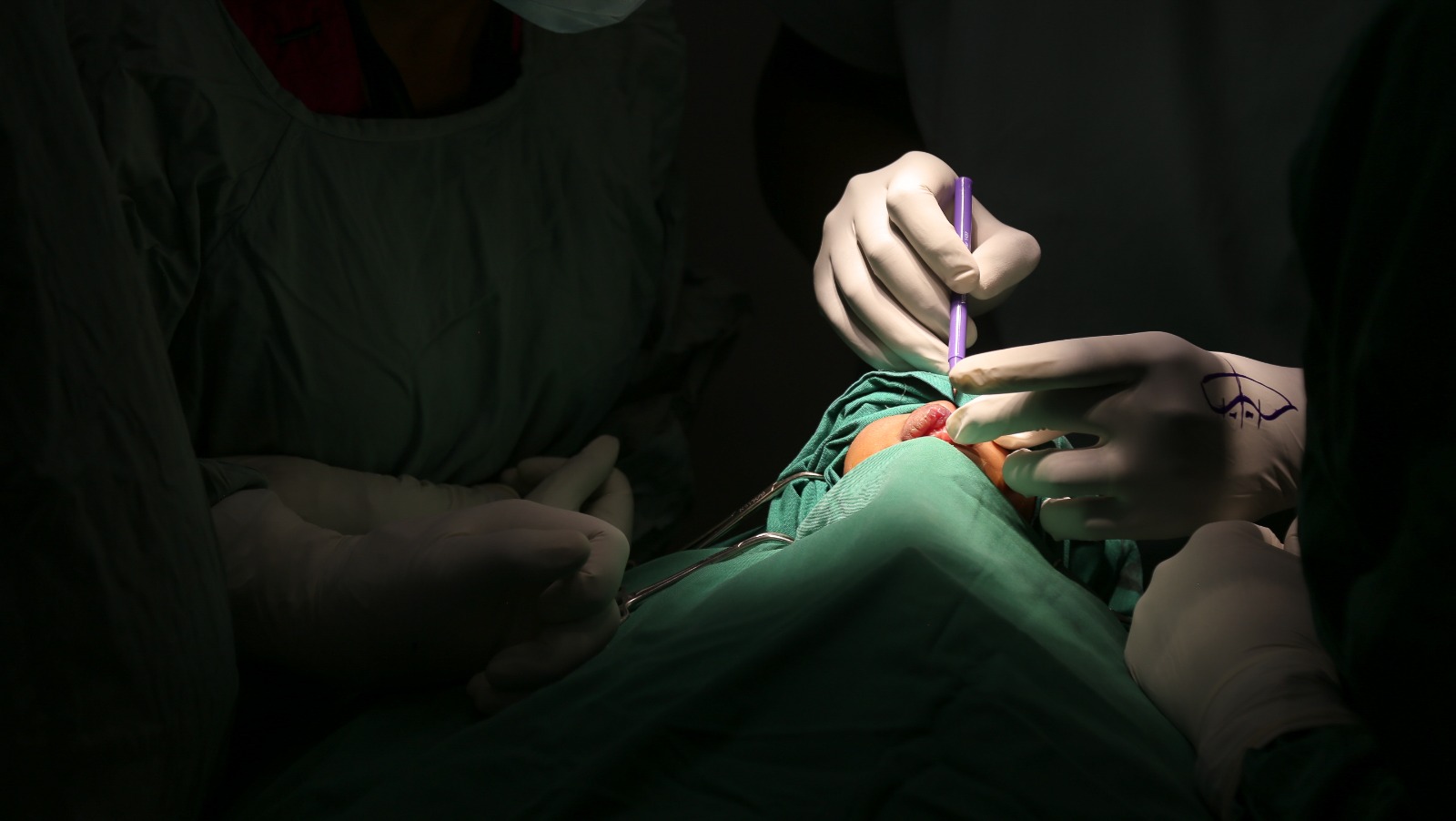

Nineteen-year-old Lydia Awuor sits quietly on her hospital bed in ward seven Annex at Jaramogi Oginga Odinga Teaching and Referral Hospital, her face bandaged, but her eyes reflecting strength.
Just a day earlier, she underwent corrective surgery for a cleft lip, a procedure she describes as transformative and the beginning of a new life.
Born and raised in Migori county, Lydia had lived with a visible cleft lip in her rural village.
Limited access to medical information and financial constraints meant her disfiguring condition went untreated.
As a child, she was often teased, especially in school. The bullying chipped away at her self-esteem and she withdrew socially, isolating herself.
“I hated my look,” Lydia told the Star. “I kept wondering why I was different from my siblings and other students.
Despite emotional challenges, she remained focused on her education.
Her determination paid off. She has secured a place at university to pursue a degree in Education Arts, majoring in Kiswahili and Christian Religious Education.
She dreams of becoming a teacher, not only to educate but also to inspire other children who may feel isolated or misunderstood.
Now she feels her dream is within reach, thanks to surgery at a medical camp for cleft lips and palates at JOOTRH from July 14 to 17.
The camp is a collaboration
between JOOTRH, Smile Train and the Kenya Society of Plastic, Reconstructive
and Aesthetic Surgeons.
It offers free life-changing surgeries to patients born with cleft conditions.
Lydia is one of the older patients to benefit from the programme.
After years of silently enduring the social and emotional weight of her condition, she says the surgery has already started to rebuild her confidence.
“I feel hopeful. This change isn’t just about appearance it’s about feeling whole.”
Myths regarding cleft lip and palate abound, not only in Africa, and they affect both patients and parents. In Kenya, women are often blamed for a child’s cleft condition. Uneducated people might say she was unfaithful to her partner, she had a failed abortion that cut the child’s face or was cursed.
Some groups view clefts as a result of divine will, evil spirits, handling sharp objects during an eclipse, or even a husband fishing during the pregnancy. Some West African communities view the deformity as divine punishment for parental sins such as witchcraft or prostitution. Children born with the condition are therefore kept out of sight.
Mother's fights for her son
In the same ward, Faith Akumu from Homa Bay keeps watch over her three-year-old son, Maxwell Donald.
He recently underwent cleft palate surgery, correcting a condition that made it difficult for him to eat and speak.
Donald had his cleft lip corrected in 2022, but the palate remained a challenge. Feeding him was difficult, as milk would often spill out through his nose and his speech development was delayed.
His mother tried to secure surgery in 2023, but Maxwell didn’t meet the minimum weight requirements. Feeding problems meant he was underweight.
Last year, he developed a fever during the camp period and was again ineligible. This year, at last, Maxwell was cleared for surgery.
“I was relieved when the doctors said he could go through with it. Now the responsibility is on me to follow the aftercare instructions,” his mother said.
She emphasises the importance of early treatment and urges parents not to hide their children due to fear or shame.
“This is not a curse. It’s a medical condition and it can be treated.”
Breaking stigma, restoring dignity
Dr Stephen Bati, a maxillofacial surgeon at JOOTRH, says the camp is not only about surgery, but also about restoring dignity and changing mindsets.
“Cleft conditions affect more than appearance,” he explains.
“They impact feeding, speech, and social interaction. Surgery allows patients to reintegrate into society.”
While the surgeries are free for eligible patients under the Social Health Authority insurance scheme, not all families take advantage of the opportunity.
Myths, fear, and stigma still deter some from seeking help.
This year’s camp has helped a number of children and teens. The youngest patient was only three months old, lucky that surgery was performed early when it can be most effective.
Each surgery represents a fresh start, a chance to grow up or move forward without the weight of stigma.
Quiet triumph
As Lydia prepares to return home to Migori and continue her recovery, she reflects on what the surgery means for her future.
“For years, I avoided speaking in public. Now, I want to stand in front of a classroom and show others that healing is possible.”














